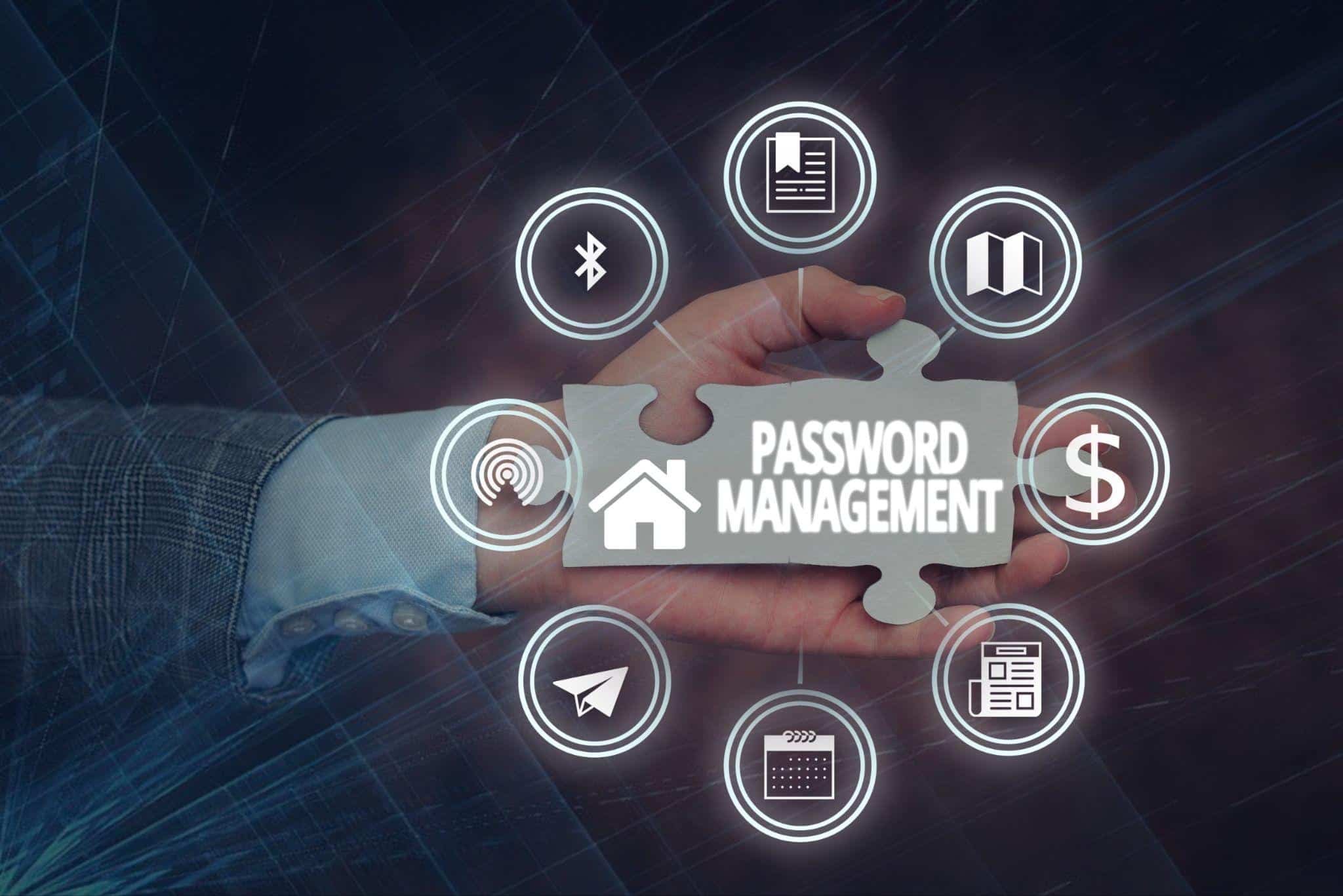Cybersecurity has now become a critical concern for businesses of all sizes. Strong passwords are the first defense against cyberthreats, protecting business data from unauthorized access. This is especially important for small to medium-sized businesses (SMBs), who can be more vulnerable to cyberattacks due to the amount of data they have access to, as well as what tends to be weaker cybersecurity measures.
Luckily, password management can help keep SMBs, and their data, secure.
What Is Password Management?
Password management involves securely creating, storing, and maintaining passwords to protect sensitive information. Gone are the days of simple, easy-to-remember passwords, with passwords now becoming complex combinations of characters, numbers, and symbols.
Despite this evolution, many misconceptions still exist. Some business owners believe that changing passwords frequently is enough, while others think password management tools are unnecessary. Effective password management goes beyond these basic measures and involves a comprehensive approach to cybersecurity. For SMBs, this is a tool that simply shouldn’t be overlooked—while it might seem like nothing, the cybersecurity it brings with it can make or break your business.
The Risks of Poor Password Management
Poor password management exposes businesses to a variety of security threats, such as the following:
Data Breaches
Weak or reused passwords can be easily exploited by cybercriminals, leading to unauthorized access to sensitive business data. Data breaches can expose confidential information such as customer records, financial details, and intellectual property. Once leaked, cybercriminals can use this data for harmful purposes, causing significant harm to both the business and its clients.
Financial Loss
Businesses may face direct financial losses due to theft or fraud. Additionally, they may incur substantial costs related to mitigating the breach, including legal fees, regulatory fines, and expenses associated with restoring compromised systems. Indirect costs, such as lost revenue and decreased productivity, can exacerbate the financial burden.
Reputational Damage
Customers, partners, and stakeholders may lose trust in the company’s ability to protect their information, leading to a loss of business and damaged relationships. Rebuilding trust and repairing a tarnished reputation can be long and challenging, negatively affecting the business’s brand image and market position.
The Importance of Effective Password Management
Effective password management can help SMBs in the following ways:
Improved Compliance with Industry Regulations and Standards
Many industries have stringent regulations regarding data protection and cybersecurity. Effective password management helps businesses comply with these regulations, avoiding costly fines and legal issues. Adhering to industry standards also demonstrates a commitment to cybersecurity, which can increase a company’s reputation and build trust with customers and partners. Businesses with higher trust levels gain more customers, meaning overall business growth.
Increased Efficiency and Productivity
A good password management strategy can streamline access to systems and applications, increasing efficiency and productivity. Password managers, for instance, eliminate the need to remember multiple passwords, allowing employees to focus on tasks without the hassle of password-related issues. This improves workflow and reduces the risk of human error, which can lead to security breaches.
Support for Remote Workforce Security
Remote employees often access business systems and sensitive data from various locations and devices. Implementing strong password policies, multi-factor authentication, and secure access controls ensures that remote workforce environments remain protected against cyberthreats, regardless of location.
Tools and Technologies for Password Management
Utilize the following advanced tools and technologies for password management:
Password Managers
Password managers are tools designed to store and manage passwords securely. They generate strong, unique passwords for each account and store them in an encrypted database, accessible only by the user. This simplifies password management and improves security by reducing the likelihood of password reuse and weak passwords.
Password managers don’t have to break the bank as well; there are inexpensive and free password managers available for businesses of all sizes to utilize.
Multi-Factor Authentication (MFA)
Multi-factor authentication (MFA) adds a layer of security by requiring users to provide two or more verification factors to access an account. These factors could include something the user knows (password), something the user has (security token), or something the user is (biometric verification). MFA significantly reduces the risk of unauthorized access, even if a password is compromised. Think of it this way: even if someone gets an employee’s password, they cannot copy their security token, meaning they still cannot gain access to your business—and its data—keeping it safe.
Behavioral Biometrics
Behavioral biometrics analyze patterns in user behavior, such as typing speed, mouse movements, and touchscreen interactions, to authenticate identity. This technology continuously monitors and verifies user activity, providing a dynamic security measure that can detect and prevent unauthorized access based on deviations from typical behavior.
Passwordless Authentication
Passwordless authentication eliminates the need for traditional passwords by using alternative methods such as biometric data, security keys, or single-use codes sent via email or SMS. This approach reduces the risk of weak or compromised passwords and increases user convenience by simplifying the login process. This is particularly useful for SMBs, as a security key is much easier for any employee to remember, thus leading to shorter downtime and ease in working.
Cloud-Based Password Management Solutions
Cloud-based password management solutions offer centralized, scalable, and secure platforms for storing and managing passwords. These solutions include automated password generation, secure sharing, and access management. They are particularly beneficial for businesses with remote or distributed workforces, as they enable secure password management from any location.
Artificial Intelligence and Machine Learning
Artificial intelligence (AI) and machine learning (ML) technologies can enhance password management by detecting unusual login patterns and potential security threats in real time. AI-driven tools can automatically enforce password policies, recommend stronger passwords, and identify compromised credentials, helping businesses stay ahead of evolving cyber threats.
Best Practices for Implementing Password Management
Implement the following best practices for password management:
- Create and Enforce a Password Policy: Develop a clear password policy outlining the requirements and expectations for password creation and management.
- Encourage the Use of Passphrases: Promote using long, memorable passphrases instead of simple passwords.
- Monitor and Audit Password Usage: Regularly review and monitor password usage to detect and address potential security issues.
- Regularly Update and Review Password Policies: Continuously update password policies to keep up with evolving security threats and best practices.
If you’re an SMB looking for an easy yet effective way to keep your business safe, strong password management is a great place to start. At CMIT Solutions of Hayward, we offer the best IT and cybersecurity solutions for businesses, and can create a cybersecurity solution that fits both you needs and budget. Contact us to learn more!





